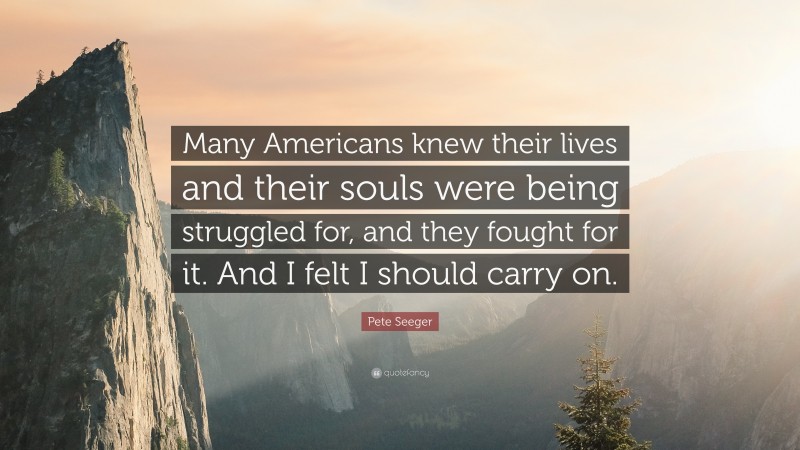
The unknown Dylan had benefited from Seeger's patronage, and all acknowledged his crucial role.

When Bruce Springsteen and Ry Cooder released albums during the run-up to the 2012 US presidential election, using their songs to make strong and unequivocal statements on behalf of those weakened and dispossessed by the activities of the super-rich, they were following the example of Bob Dylan, whose early protest anthems, such as Blowin' in the Wind and The Times They Are a Changin', emerged from the scene that Seeger had done much to nurture. Yet although his own style of performance – lively but dignified, informal but literal, paying no heed to the devices of showbiz stagecraft – may have been rendered obsolete by the discoveries of those who owed him a great deal, nevertheless everyone knew the lanky, unstylish figure and what he stood for, and that was more than enough.


He was not a crusader on behalf of some academic notion of authenticity he knew that music had to evolve, but he preferred it to retain a core of accessibility and potential relevance to a mass audience.


 0 kommentar(er)
0 kommentar(er)
